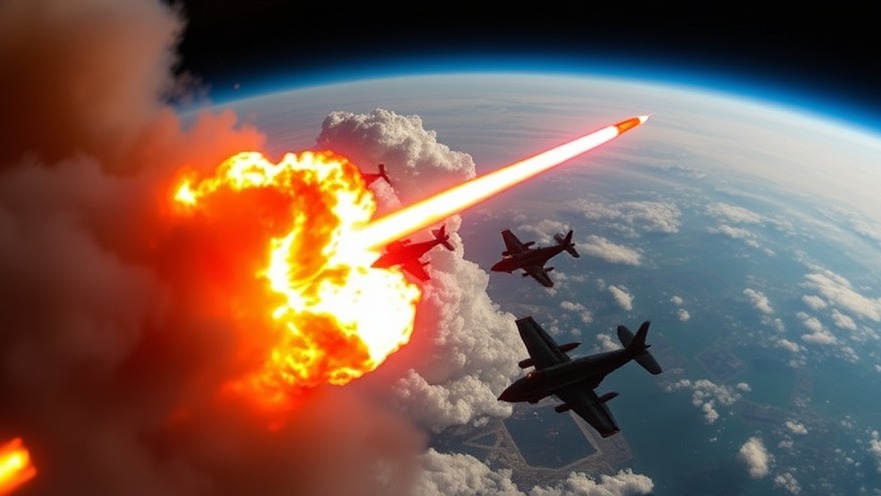
The Boldness of U.S. Political Maneuvering in the Middle East
In a dramatic shift in Middle Eastern geopolitics, Ohio Senator J.D. Vance highlighted the recent U.S. military strikes on Iran’s nuclear facilities, stating they represented a significant reset moment for the region. Vance's assertion coincides with former President Donald Trump's announcement of a ceasefire between Israel and Iran, marking a pivotal moment in U.S. foreign policy. This complex interplay of power dynamics not only emphasizes the ongoing U.S.-Iran tensions but also sets the stage for potential shifts in alliances and influence within the region.
Understanding the Stakes: Why the Destruction of Iran's Nuclear Program Matters
The implications of striking Iran's nuclear capabilities are multifaceted. Vance argues that such military actions ensure a setback for Iran's ambitions, aligning with views held by various defense analysts. John Bolton, former National Security Advisor, praised Trump’s military decisions, deeming them necessary and overdue. By deterring Iran’s nuclear advancements, advocates argue that the U.S. can prevent further escalation in a region already rife with conflict and uncertainty.
A Broader Context: U.S. Military Strategy and Middle Eastern Relations
The recent military actions are not just isolated incidents but part of a broader U.S. strategy aimed at maintaining its influence in the Middle East. The U.S. military's role has evolved to include countering emergent threats like terrorism and rogue states seeking nuclear capabilities. As Vance pointed out, the 12-day conflict between Israel and Iran could redefine relationships in the region, with countries like Israel potentially feeling empowered by U.S. support against Iranian aggression.
Diverse Perspectives: Ripples of Division in Political Discourse
While many, including Vance and Bolton, herald these military efforts as necessary, others express caution regarding the long-term strategies of U.S. intervention in foreign conflicts. Democratic leaders, including Representative Adam Schiff, have criticized these military strikes, suggesting that they reflect a reactive rather than proactive approach to diplomacy and might complicate international negotiations with Iran. This ongoing debate calls attention to the need for a coherent policy framework that considers both military and diplomatic avenues.
The Impact of Military Decisions on Domestic Politics
Discussions around foreign policy, particularly actions related to military interventions, often permeate domestic politics. As Trump and Vance underscore military readiness and national security, they garner support from Republican bases. This framing of foreign military actions resonates with voters who prioritize strong national defense. Conversely, it poses challenges for Democratic leaders who must balance progressive stances on foreign intervention with the need for national security.
Anticipating Future Developments: What Lies Ahead in U.S.-Iran Relations?
The current geopolitical climate indicates that U.S.-Iran relations may face continued volatility. With the Israeli-Iranian ceasefire, future interactions will be crucial in determining whether further military interventions will recur. The Biden administration's approach toward Iran’s nuclear ambitions remains a critical factor, as diplomatic engagements amidst military posturing may become necessary to stabilize the region.
Conclusion: Actionable Insights for Stakeholders
As stakeholders digest these developments, understanding the implications of U.S. military actions in the Middle East becomes increasingly vital. The intersection between military strategy and diplomatic dialogue will shape future policy directions as countries navigate this complex landscape. The continuation of military efforts combined with a balanced diplomatic approach could be essential for fostering stability in the Middle East.
 Add Element
Add Element  Add Row
Add Row 



Write A Comment